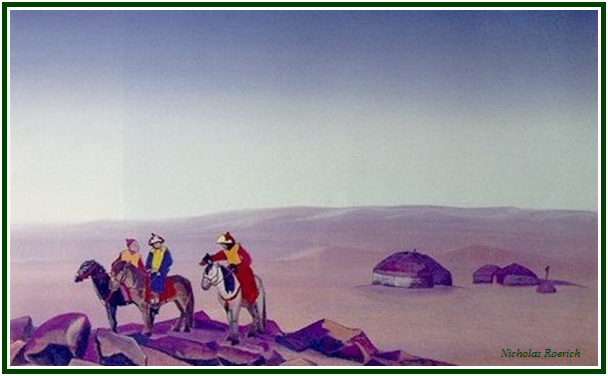
A Few Examples of Ancient Eastern Wisdom
Helena P. Blavatsky (Ed.)

A Mongolian Landscape in the Early 20th Century
00000000000000000000000000000000000000000
Editorial Note:
The following text is reproduced from “Lucifer”
magazine, London, August 1888 edition, p. 491. The
word “Lucifer” means “light-bearer”. It is the ancient
name for the morning-star, Venus. Since the Middle Ages,
the word has been distorted by ill-advised theologians.
(CCA)
000000000000000000000000000000000000000000000000000
*If thou lovest nature, thou lovest man. If thou hatest man, thou hatest nature, for the two are inseparable.
*Learn from all thou comest in contact with. Learn from the wicked as from the good; do, as the wise bee doeth, which extracts sweet honey from the bitterest plant, truly.
*Slave, thou shalt not purchase thy freedom with the bondage of thy friends and next-of-kin; nor shalt thou seek to obtain it, if that freedom be at the price of making the slavery of the enemy more sorrowful.
*Learn to discern light from darkness, and to perceive in the darkest night the bright dawn of the coming day.
*Better that thou shouldst be twice deceived, and cursed thrice by LIE for no lie of thine, but thy truthful word, rather than deceive thy enemy even once, or so much as think of cursing thy greatest foe.
*He who curses, poisons his own heart, losing thereby every spark of love in him.
*Hate is the black skunk, and love, the pure, snow-white ermine: it is enough to let in one skunk to clear a whole plain of ermines – aye, to the last.
000